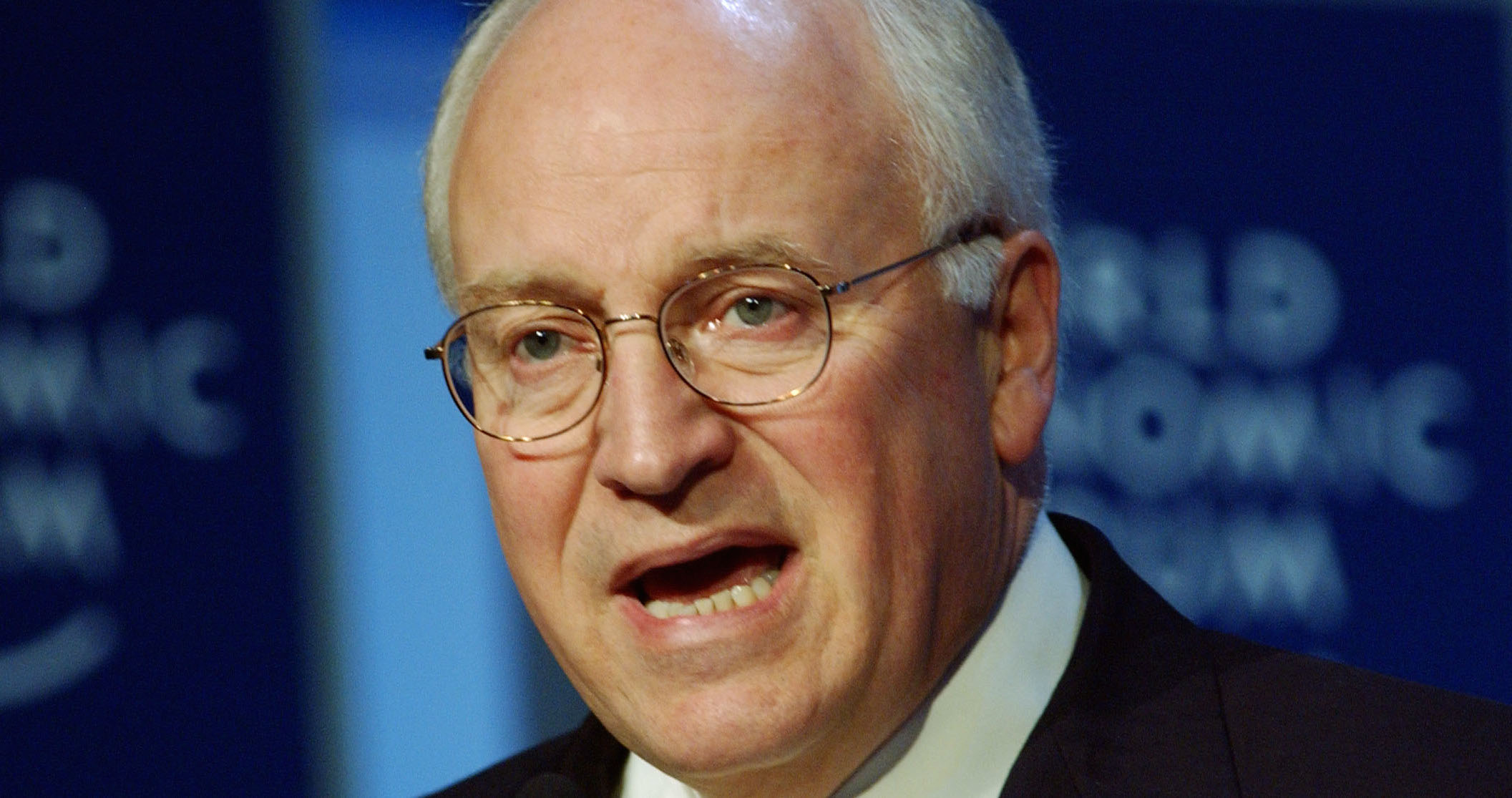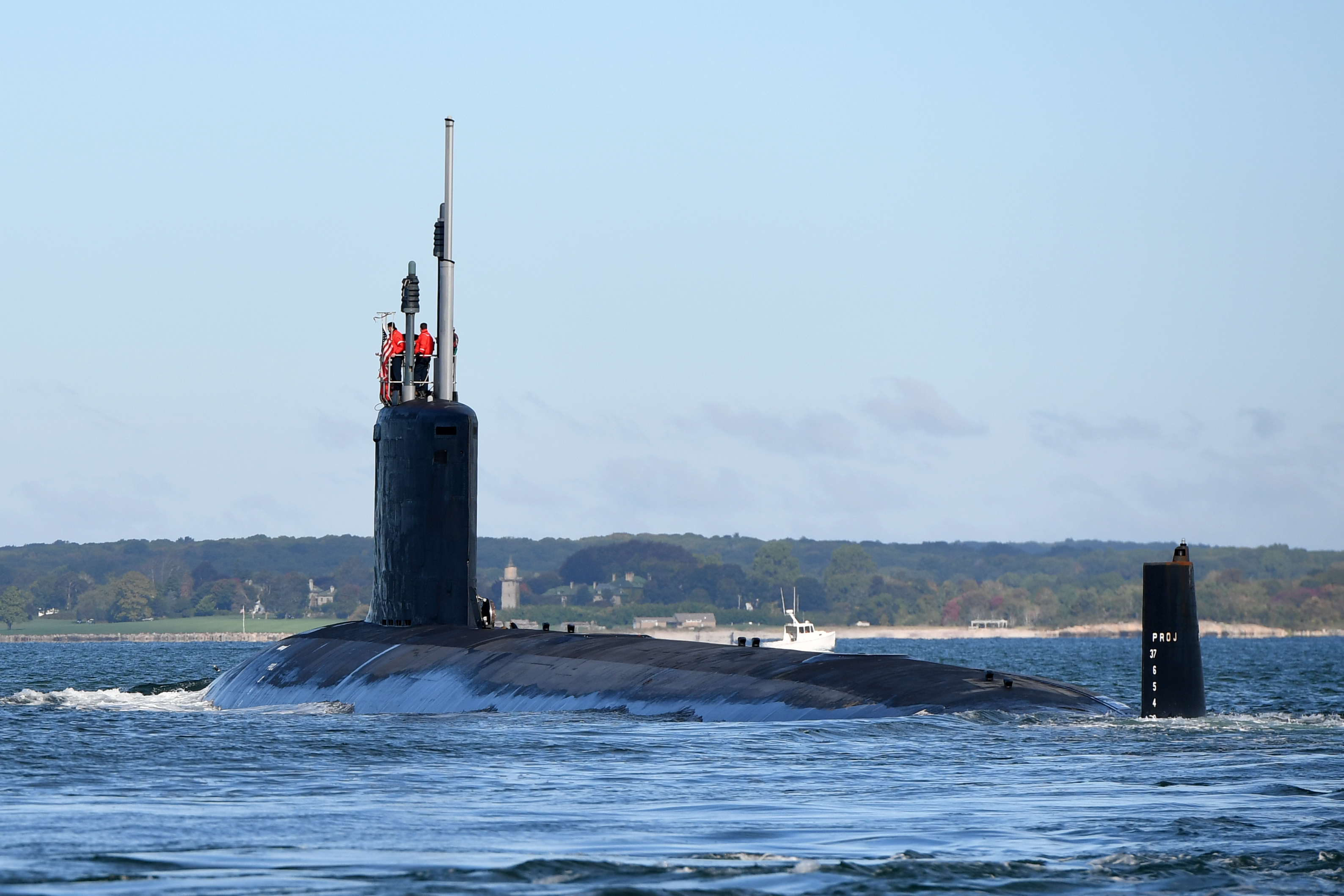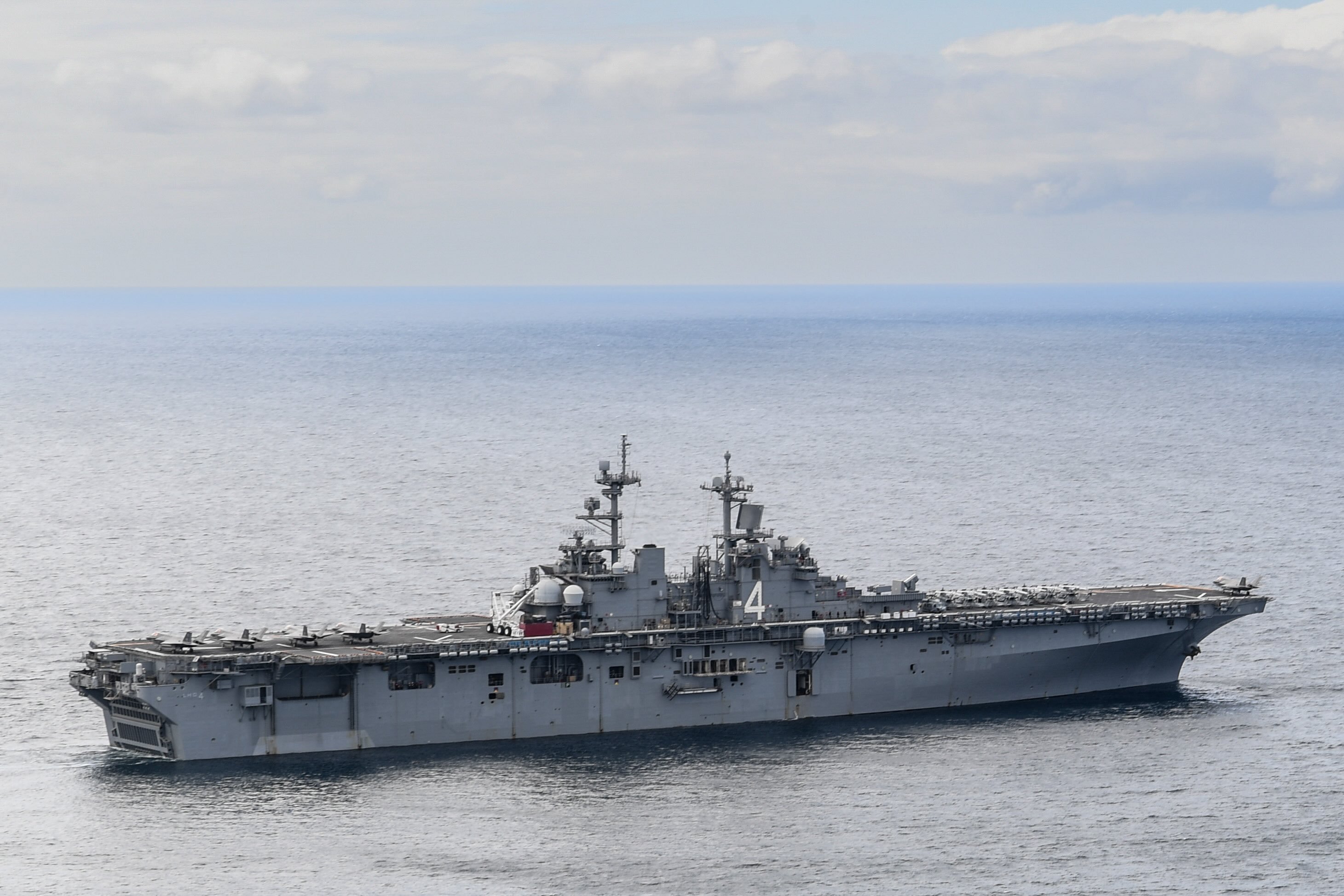
Former Vice President Dick Cheney said President Barack Obama was wrong in asserting that the threat from Islamic fundamentalists to the United States was declining during his term in office. Instead, Cheney said, “a whole new wave of jihadists” was rising in the Middle East and that “al Qaeda is not diminished.”
Speaking Wednesday at the American Enterprise Institute, a Washington think-tank—and hours before Obama is to address the nation on his plans to confront the Islamic State— Cheney said “ISIS is now attracting thousands from Europe and hundreds from the United States [who are] intending to return home unless their passports are revoked.”
He said, “A real strategy has to recognize ISIS is a threat” to the United States; and because the group does not recognize a border between Syria and Iraq,” neither should the United States as a step to defeating them. He mentioned airstrikes, intelligence-gathering, and sharing and providing special forces trainers to the Iraqi army and Peshmerga, the security force of the Kurdistan Region of Iraq, as necessary to achieve that goal.
(The Islamic State is also known as the Islamic State of Iraq and Syria [ISIS] or the Islamic State of Iraq and the Levant [ISIL].)
Cheney said the United States’ post-war history of leadership shows that it “must move offensively” to put an end to this growing threat as it has in the past. “Winning will require allies,” but “we have lost credibility” with nations in the Middle East by not following through on commitments to allies and partners there. He said the loss of credibility also includes the administration’s not backing its warnings with actions. He cited the United States not striking Syria after the regime of Bashar al Assad used chemical weapons against civilians in its civil war. “Syria is just one example” of the administration’s “indifference” to events that “crossed the red line” at which the United States said it would act.
He called on the administration to designate the Muslim Brotherhood as the “terrorist organization it is” and to defend Jordan and support Egypt in their efforts to control it. He advocated “a halt to the drawdown in Afghanistan” to avoid creating a situation similar to what is happening now in Iraq, where the Islamic State controls a large portion of the Sunni-dominated area of that nation.
It is “time to put to rest [the idea that terrorism is] “just street crime at a higher level.”
Cheney warned that a nuclear-armed Iran “poses an existential threat to Israel and other nations” and that United States needs to make clear it “will take military action” if Tehran builds those weapons. He said the United States “was lucky” that Syrian weapons didn’t fall into the hands of ISIS in recent months. Among the reasons it didn’t: Israel had destroyed a reactor capable of supplying material seven years earlier, and Libya had voluntarily surrendered its materials following the capture of Saddam Hussein.
On the proliferation of nuclear and weapons of mass destruction he specifically mentioned North Korea’s and Pakistan’s history of working clandestinely with other nations on those programs. Proliferation “is a major threat; we don’t know where it is going.”
“Hostile people are making conclusions” about what the United States will do in crises, like a nuclear-armed Iran, the spread of ISIS to other countries in the Middle East, the Russian seizure of Crimea and the fighting between Russian-backed separatists and the government in Ukraine. In weighing threats in addition to jihadists, he named North Korea and Iran as enemies and China and Russia as “strategic rivals.”
Acknowledging that a segment of the Republican Party was isolationist, a course that he termed “dead wrong,” Cheney called for “a major new commitment to restoring American military superiority” instead of “sending pink slips to captains and majors” and an end to “irrational budget cuts.”
“The defense budget is different [from] any other part of the federal budget,” he said. In other agencies it is a case of “what we want” in drawing up spending plans, but in defense it is “what we need” to deter crises and prevent them from turning into catastrophes.





